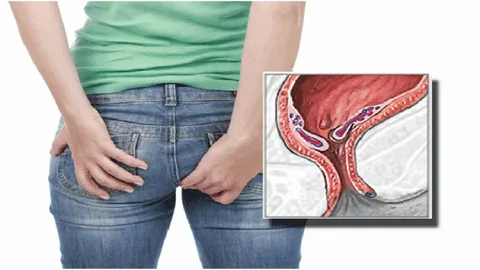Chronic hemorrhoids, a common medical condition, can significantly impact one’s quality of life. In this comprehensive guide, we will delve into the causes, symptoms, diagnosis, and effective strategies for dealing with chronic hemorrhoids. We’ll explore both non-surgical and surgical treatment options, as well as preventative measures to help you manage this condition.
Understanding Chronic Hemorrhoids
Chronic hemorrhoids, also known as piles, are swollen veins located in the lower rectum and anus. They can be caused by various factors, and they tend to develop gradually over time.
The Causes of Chronic Hemorrhoids
Chronic hemorrhoids can be attributed to several causes, including straining during bowel movements, obesity, pregnancy, and a sedentary lifestyle. Additionally, a diet low in fiber and high in processed foods can increase the risk of developing chronic hemorrhoids.
Common Symptoms
The symptoms of chronic hemorrhoids often include rectal bleeding, discomfort, itching, and pain during bowel movements. These symptoms can be quite distressing, but there are effective ways to manage them.
Diagnosis and Evaluation
If you suspect you have chronic hemorrhoids, it’s essential to consult a healthcare professional for a proper diagnosis. They will examine the affected area and may recommend further tests to rule out other conditions.
Non-Surgical Treatment Options
Dietary and Lifestyle Changes
One of the primary strategies for managing chronic hemorrhoids is making dietary and lifestyle changes. Increasing your fiber intake, drinking plenty of water, and maintaining an active lifestyle can help alleviate symptoms.
Over-the-Counter (OTC) Medications
Over-the-counter medications, such as hemorrhoid cream and suppositories, can provide temporary relief from the pain and itching associated with chronic hemorrhoids.
Home Remedies
Various home remedies, like warm sitz baths and applying witch hazel, can offer comfort and reduce inflammation.
Surgical Treatment Options
Rubber Band Ligation
Rubber band ligation involves placing a small rubber band around the base of the hemorrhoid to cut off its blood supply. This procedure is effective for treating prolapsed hemorrhoids.
Hemorrhoidectomy
A hemorrhoidectomy, in which the surgeon eliminates the hemorrhoids, may be required in more severe situations. This procedure is typically thought of as a last resort when other therapies have failed.
Sclerotherapy
Sclerotherapy is a less invasive surgical approach that includes injecting a fluid into the hemorrhoid to get it to shrink.
Preventing Chronic Hemorrhoids
Preventing chronic hemorrhoids involves maintaining a high-fiber diet, staying hydrated, and avoiding prolonged periods of sitting or straining during bowel movements.
Living with Chronic Hemorrhoids
While it’s essential to manage chronic hemorrhoids effectively, it’s also crucial to understand that this condition can be a chronic issue for some individuals. Learning to live with it and maintain a good quality of life is possible with the right strategies.
Coping with Pain and Discomfort
Chronic hemorrhoids can cause pain and discomfort. Over-the-counter pain relievers and warm baths can provide relief.
Dietary Considerations
To prevent chronic hemorrhoids from worsening, it’s crucial to follow a diet rich in fiber and to avoid spicy and acidic foods that can exacerbate symptoms.
Staying Active and Hydrated
Staying active and drinking plenty of water can help maintain regular bowel movements and alleviate discomfort.
Conclusion
Dealing with chronic hemorrhoids can be challenging, but by understanding the condition, following a healthy lifestyle, and exploring various treatment options, you can effectively manage the discomfort and improve your quality of life.
FAQs
- What are the primary causes of chronic hemorrhoids?
Chronic hemorrhoids can be caused by factors such as straining during bowel movements, obesity, pregnancy, and a diet low in fiber.
- How can I relieve the discomfort associated with chronic hemorrhoids at home?
You can relieve discomfort by taking warm sitz baths, using over-the-counter creams, and making dietary and lifestyle changes.
- Are there any dietary restrictions for individuals with chronic hemorrhoids?
It’s advisable to avoid spicy and acidic foods and focus on a high-fiber diet.
- What are the long-term consequences of untreated chronic hemorrhoids?
Untreated chronic hemorrhoids can lead to complications such as bleeding, thrombosis, and prolapse.
- When should I seek medical attention for my chronic hemorrhoids?
If you experience severe pain, or excessive bleeding, or your symptoms do not improve with home remedies, consult a healthcare professional for evaluation and treatment options.

